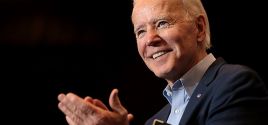Conning the Poorby Jacob G. HornbergerJan. 28, 2012 |
Popular 
Biden Commutes Sentences of 37 of 40 Federal Death Row Inmates - Excludes Robert Bowers, Dylann Roof

U.S. 'Shoots Down Own Jet' Over Red Sea in 'Friendly Fire Incident'

Ohio Senate Passes Bill Aimed at Outlawing Criticism of Israel, Criminalizing Gospel

Putin Accuses 'Ethnic Jews' of Tearing Russian Orthodox Church Apart

Saudi National Rams Car Into Germans at Christmas Market in Suspected Terrorist Attack [UPDATED 2X]
 The biggest con in history — bigger even than Social Security — might well be the one in which statists have conned the poor into believing that the welfare state helps them. If those at the bottom of the economic ladder were ever to realize how badly they’ve been conned, that could spell the end of the welfare-state way of life. The welfare state is obviously a seductive notion, one that makes the poor especially susceptible to the con. The government offers free money (or other benefits) to people. Who’s going to turn down free money? For the person who is struggling just to survive, it’s a no-brainer. He’s inevitably going to take the money. By the time the person has been on the dole a while, he starts to realize how dependent he has become on it. But by that time, it’s oftentimes too late. He’s too hooked on the money to give it up. And he realizes that with his dependency has come government control over his life. The welfare process is much like how heroin dealers operate. The drug dealer offers cheap samples to his customers. Before long, they’re hooked. The dealer has them right where he wants them. When I practiced law many years ago in my hometown of Laredo, Texas, I represented a young couple who lived in a public-housing project, along with their children. They explained to me that they really hated living there but felt that they were locked in to staying there. Why? Because in order to live there, the government prohibited them from earning too much money. If their income exceeded the allowed amount, the government would kick them out of the project. Since they didn’t have the money to move into a private apartment or house, they stayed in the project and kept their income low in order not to be kicked out. That’s what statists call “helping the poor.” Actually, the welfare state helps the rich — that is, the big, well-established businesses. How? Think of it this way: Imagine there is no welfare (and warfare) state, regulated or managed economy, and income tax. In that society, the poor (and everyone else) are free to keep their entire income. They inevitably save a percentage of that income. Let’s assume that 10 workers in a particular business each save $10,000 per year. At the end of five years, each of them has $50,000 in savings. The total amount of savings for all of them is half-a-million dollars. One day, the ten of them decide to leave the firm and to start up their own business, one that will compete against the former employer. They go out and hire a bunch of people in the neighborhood at very low wages (there would be no minimum wage law) and long hours (no overtime laws) but with stock options given to the workers, who readily accept the deal. The new company struggles but ultimately succeeds in satisfying the consumers, taking market share from its competitors. Its revenues and profits soar. Both the owners and employees benefit. Some of them become rich. That is, poor people have become rich people. Isn’t that a much better outcome than one in which people are placed on a welfare dole for the rest of their lives, a dole that prevents them from becoming rich? Under the welfare state, however, that scenario is virtually impossible. For one thing, because of withholding and other taxes, the employees are unable to save the nest egg that is necessary to start the business. They can’t afford the start-up costs to comply with the mountains of government permits, regulations, and tax provisions. They can’t hire people in the neighborhood at below the minimum wage. They are forced to pay overtime for employees who work more than 40 hours a week. Thus, the welfare state ends up protecting the big, well-established companies, which don’t have to worry as much about competition from new start-up firms. They know that it is virtually impossible for the poor to establish companies that will take customers away. The poor have been conned long enough, and they have paid the biggest price for the con. The best thing they could ever do is to join up with us libertarians to dismantle the welfare state (and warfare state), including the income tax. __ Jacob Hornberger is founder and president of the Future of Freedom Foundation. |



